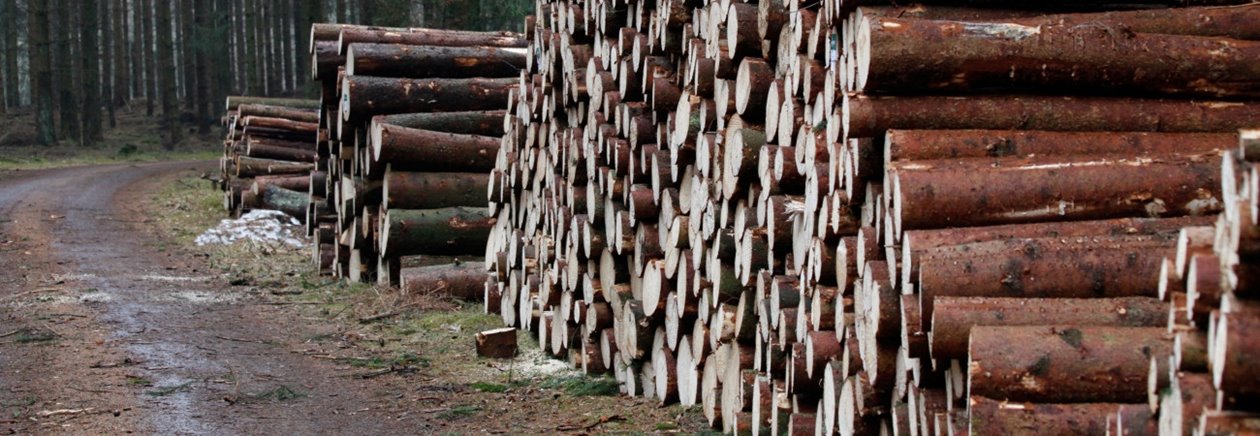Keeping the pipeline full

There is strong competition for raw materials in Europe and beyond, and pulpwood is no exception. Among other factors, the flow of wood from Södra’s members’ forests has been slower than normal following a wet autumn and winter, which has made forestry operations more difficult. In addition, bark beetle infestations in recent summers have resulted in some forest owners conducting what they consider to be sufficient felling operations for the time being. And pulpwood is increasingly attractive for other uses – energy for example.
We asked Thomas Frick and Mikael Nordin, respectively Supply Manager at Södra Skog and Sales Operations Manager at Södra, how the company can assure customers of a reliable flow of raw material to keep the pulp mills running at capacity when stocks in woodyards are, seasonally, quite low.
“External factors have had a strong effect on wood supply in Northern Europe in recent years,” says Thomas Frick. “The absence of Russian wood in the market due to the war in Ukraine has had a significant impact and it is no surprise that competition for fibre is tough. The 52,000 members and owners we have in Södra represent a big proportion of the forest in Southern Sweden, which is a major advantage for us, but we still need to be competitive in terms of price and service. Our strategy is to make our offer even stronger to ensure that we are the first choice for our members’ wood.”
“Our service to forest owners is hard to beat,” adds Mikael Nordin. “Our growing membership is evidence that the Södra model is attractive to members’ economic and sustainability interests. With most of our members passing their forest farms through the generations, they seek a partnership for profitable, sustainable forestry, which is what we provide. But we always look to do more. Our management agreements with members not only establish the best way forward for their individual holdings, but also aim to provide the most attractive conditions for the long term. We are known for transparency and this is essential to creating the trust our members have in their Södra.”
Another initiative to reward members not only for keeping the pulpwood pipeline full, but doing so in an environmentally-sustainable way, is the Nature Conservation Premium (see box below).
Södra’s pulp mills are running at capacity although it is no secret that margins are tight. “Our pulp mills have the wood they need and production volumes are safe,” says Thomas Frick. “We never take this for granted, however, and gaining market share of available resources and increasing the number of members is always on the agenda.”
“This is not an unusual situation, but certainly challenging,” says Mikael Nordin. “My expectation is that our pulp mills will have the pulpwood they need going forward too, but nonetheless to secure the production volumes is not without challenges. We will continue to drive for the efficiency gains which ensure the best outcomes for our members and customers. In these circumstances, Södra’s cooperative structure and the close connection it has with the raw material through its members is a long-term advantage in terms of being a reliable partner.
“We are in constant contact with members to ensure we keep the mills adequately supplied. As other companies might need to rely on imports of pulpwood from outside Sweden, we also have a foot in the external market, both to get a feel for it but also to bridge and secure fluctuations. But for us the key really is being able to rely on our own resources and we feel confident long term.”
Nature Conservation Premium
We tend to think of the forest as a sensory space – to hear the wind in the trees and the birds nesting, to feel the mossy ground bounce beneath our feet as we seek shade or berries or mushrooms. The forest is all these things but also much more. When managed sustainably, it is the source of renewable solutions for a fossil-free future. At Södra, economics and sustainability go hand in hand. Working forests, well cared for, help promote biodiversity. It’s why we offer our members a Nature Conservation Premium. We pay more for their wood if they set aside more than five per cent of their land for nature conservation. Payment increases in line with the amount of forest land preserved.


Show all content for topic
Subjects: Pulp
